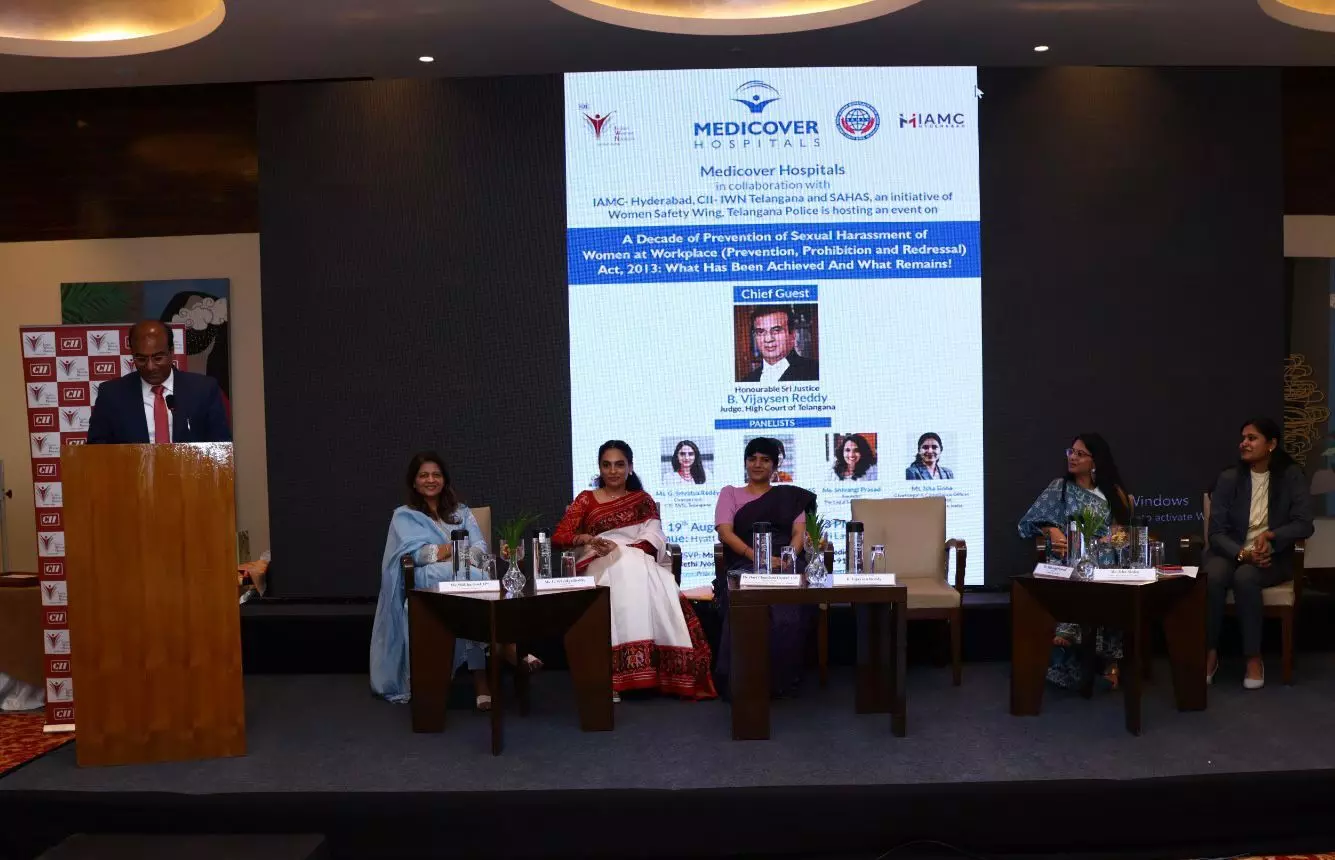Experts discuss strengths and weaknesses of POSH, bat for more inclusivity
The act went into force in 2013 with the goal of preventing sexual harassment of women at work
By Anoushka Caroline Williams
Hyderabad: Medicover Hospitals hosted a fireside chat event on Saturday titled “A Decade of Prevention of Sexual Harassment (POSH) of Women at Workplace Act, 2013: What has been achieved and what remains!”
The occasion brought together renowned women representatives from many fraternities and professions who exchanged thoughts and experiences while reflecting on the act’s problems. The principal guest at the occasion was Telangana High Court Judge, Justice Vijaysen Reddy.
The guests discussed the act’s influence and the beneficial outcomes it had delivered so far, as well as their concerns about the complications associated with its implementation on various grounds and in different circumstances.
The act went into force in 2013 with the goal of preventing sexual harassment of women at work. It advocated for robust protections and complaint redressal, with the ultimate goal of ensuring women fulfil their tasks at work with bravery, confidence, and a sense of safety and security.
Speaking on the occasion, Justice Vijaysen Reddy said that one of the act’s purposes was to eliminate gender discrimination. “Laws and guidelines were framed only after the decision in Vishakha and Others Vs State of Rajasthan lacunae. The measure has the advantage of being equally balanced and including protections for those who have been wrongfully charged.”
The judge went on to say that the concept of unacceptable behaviour was subject to interpretation. He also discussed what remained to be accomplished and why, despite the act’s comprehensiveness, cases remained outstanding.
“Quid pro quo is common in urban areas, as well as among corporations and multinationals. However, because local compliance committees are few in the rural landscape agriculture industry, unfriendly environments might produce safety hazards that are likely to be overlooked. The informal structure of most disorganised industries further compounds the matter, as victims are hesitant to file complaints for fear of job loss and a hostile atmosphere,” he added.
He also stated that one of the major faults of POSH was that it did not adequately address the issues of the marginalised sector.
“More awareness was needed about personal boundaries and unwanted behaviours. Filing a sexual harassment complaint carries a significant level of stigma. In addition, sex education in schools and universities is critical to help students understand healthy personal boundaries and how to behave respectfully,” he said.
Srividya Reddy, chairperson of CII IWN, Telangana, discussed the implementation of POSH in the schools. Hari Chandana Dasari discussed the significance of technology and telecommunication, as well as the necessity of sensitisation, as many women were unaware of the laws.
In her speech, Shivangi Prasad, founder of The Legal Swan in Mumbai, said, “Understanding the term POSH was difficult because many people are unaware of the act and its significance. Following the worldwide #MeToo movement, its awareness has increased and the number of complaints has escalated to the point that organisations are seriously investigating it.”
Medicover Hospitals organised the event in collaboration with IAMC - Hyderabad and CII IWN Telangana. In a statement, Medicover Hospitals, one of India’s fastest expanding multispecialty healthcare chains, expressed delight and said it was thrilled to be hosting such a prominent event outside of the normal healthcare sphere.
Medicover Hospitals guarantees its dedication and engages in promoting initiatives to discuss views and opinions that positively influence society in addition to delivering committed and high-quality healthcare.
According to the statement, Medicover Hospitals intends to harness its energy and seek greater engagement, resulting in more beneficial outcomes for the greater welfare of the people.